English
We believe that English is at the heart of the whole curriculum and as such have high expectations of our pupils in all areas of this, including reading, writing and speaking and listening. Children’s abilities are developed within an integrated programme of reading, writing, handwriting, spelling, punctuation and grammar across the curriculum in order to make them skilled communicators, fluent readers and expressive writers.
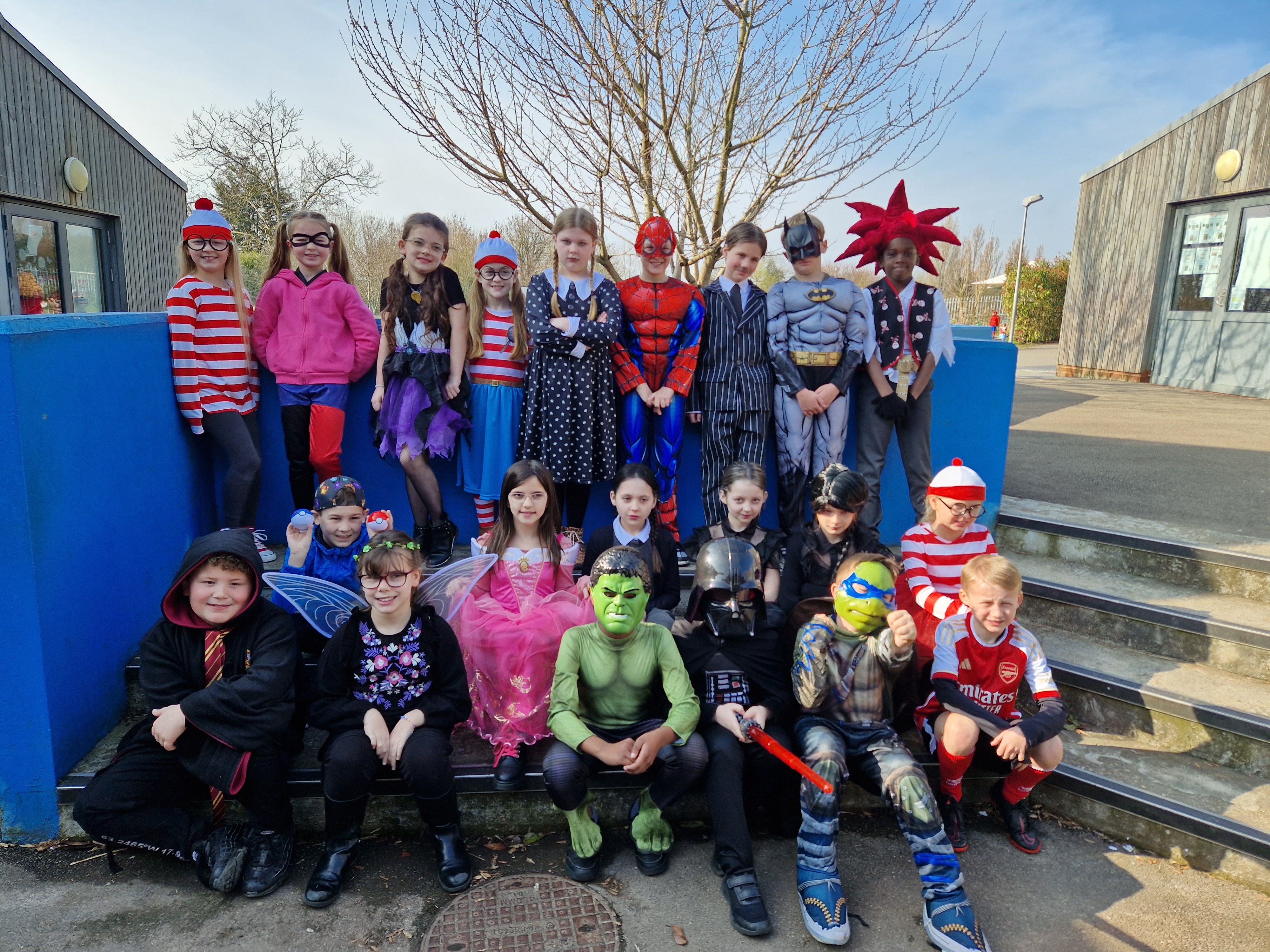
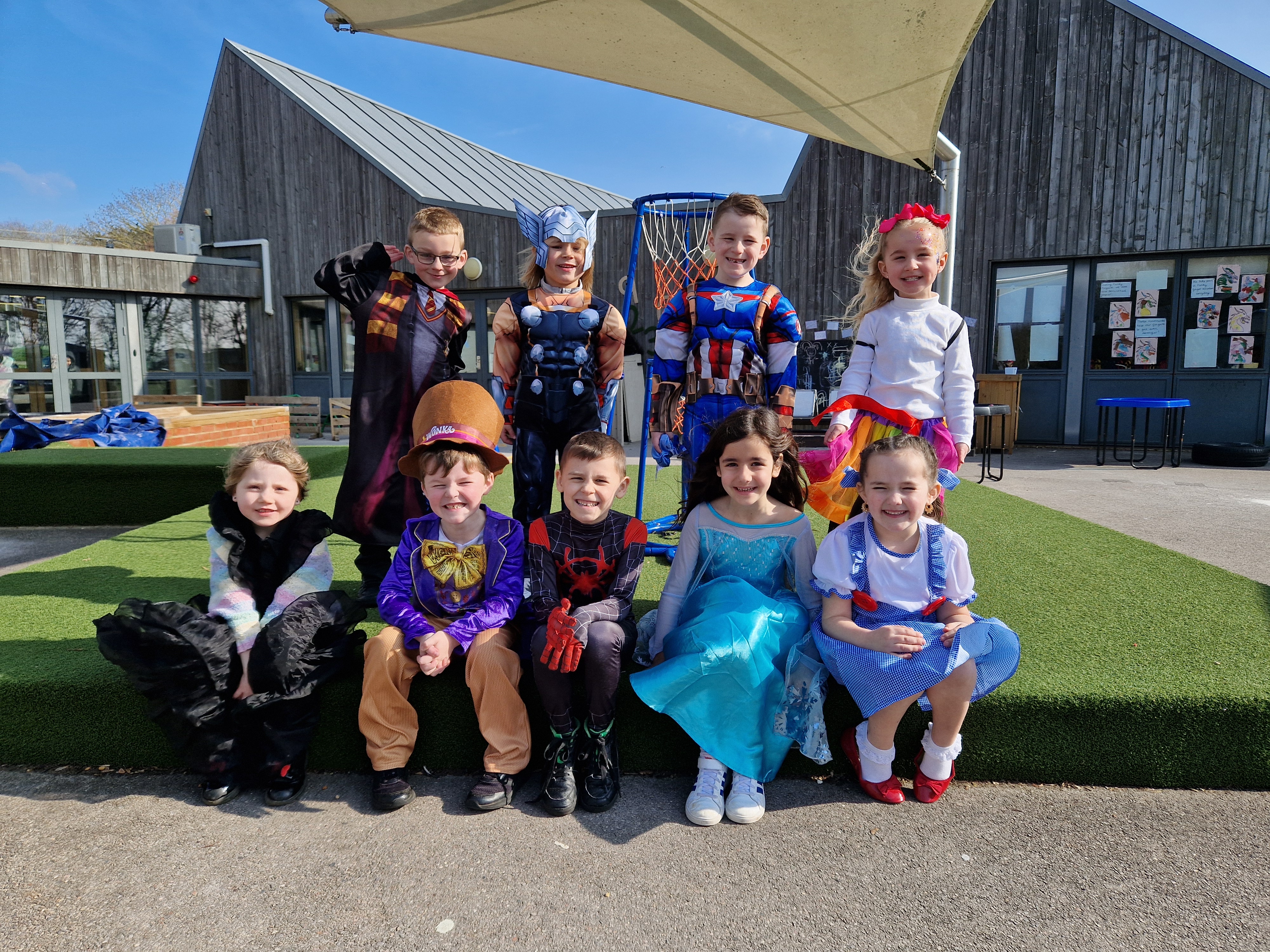
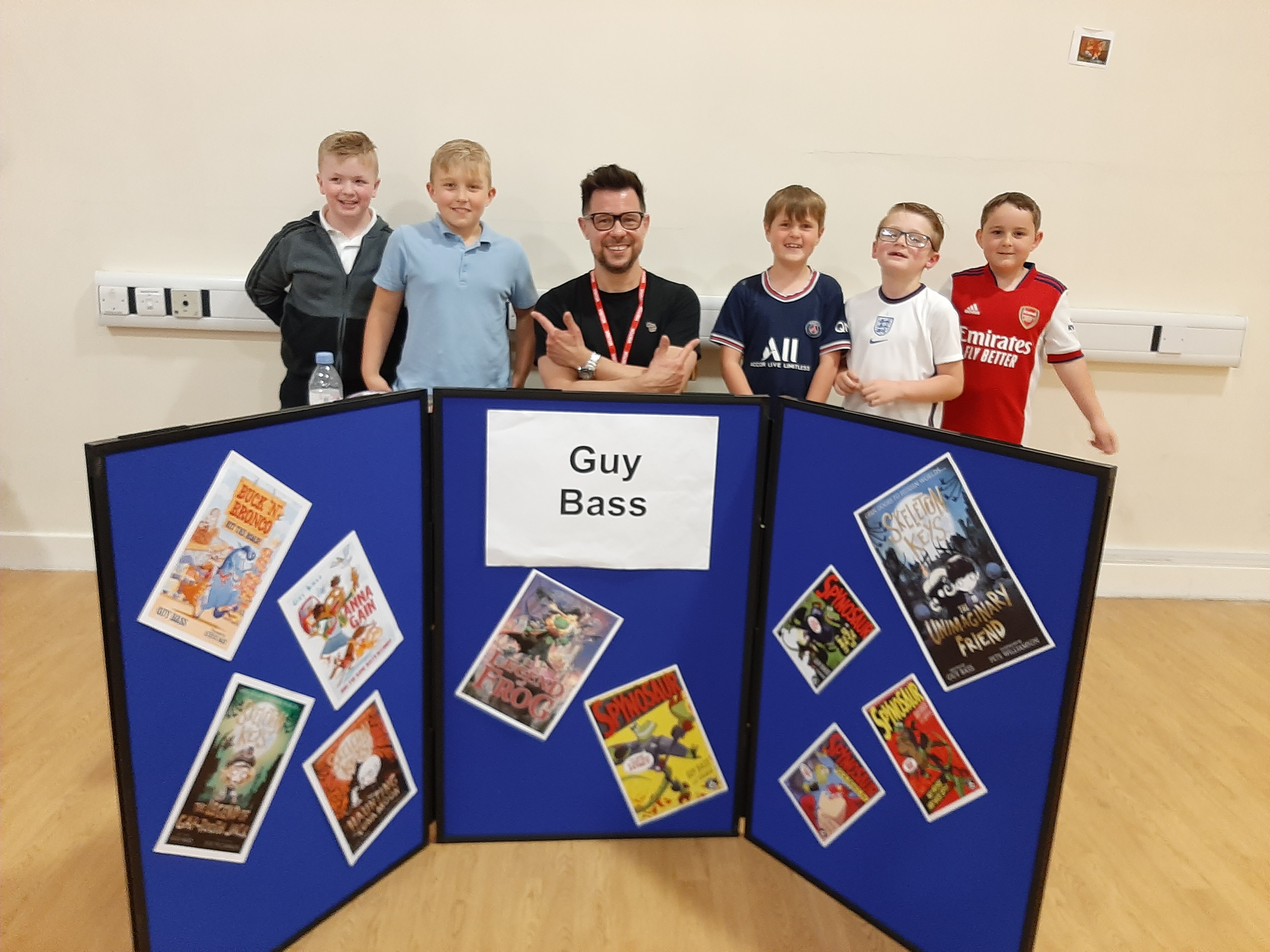
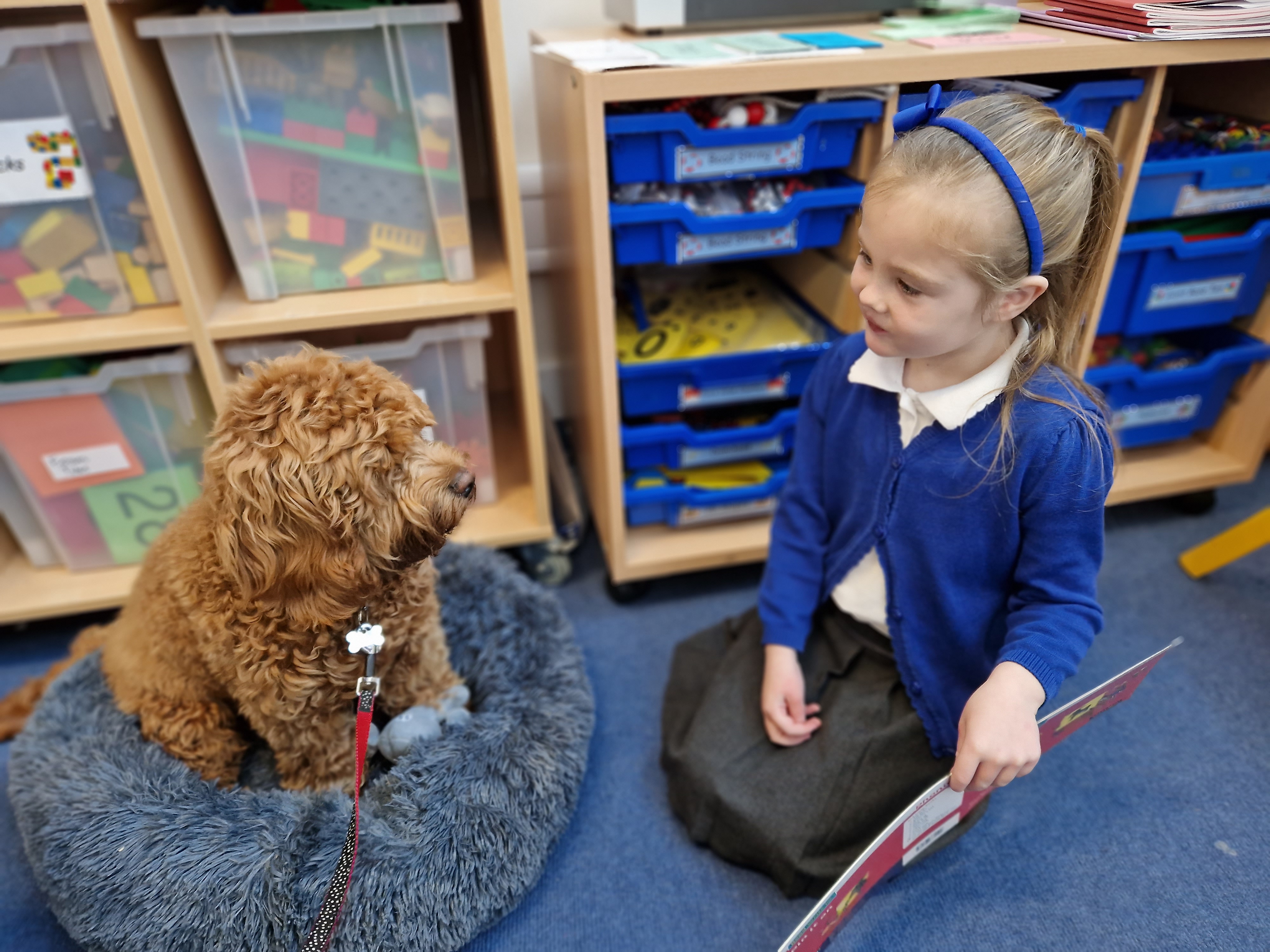
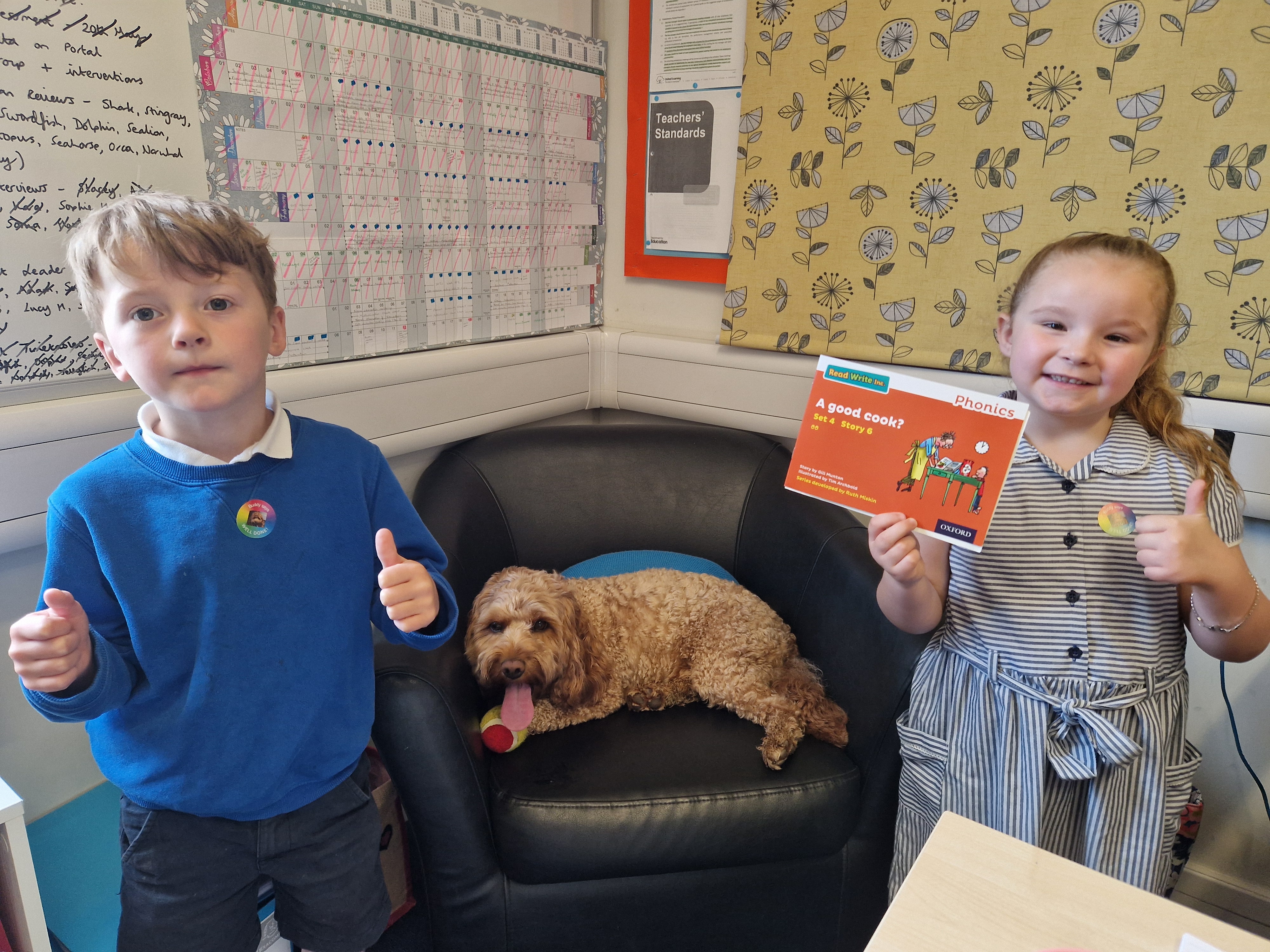
Reading
Early reading is taught through the use of our Read, Write, Inc programme. The children are assessed and are placed into Phonics groups which match their reading ability. During the phonics lesson, pupils will be taught or will review speed sounds, will read words containing the taught sound, read words that they are familiar with (to build fluency), will read story words and red tricky words as well as reading fully decodable texts. Pupils are assessed on a half termly basis to ensure that they are making progress. Pupils who find it difficult to pick up early phonics skills receive interventions to help them catch up and keep up with learning. (see Phonics section for more detail)
EYFS (and Year 1 & 2 in Autumn Term) partake in Talk Through Stories which is designed to enrich reading, promote a love of reading as well as widening and developing the children's knowledge and understanding of challenging vocabulary. During these sessions, pupils listen to the story, join in with key phrases, discuss character's feelings and actions and define key vocabulary. Vocabulary lessons are taught in addition to the Talk Through Stories sharing story books time.
To promote a love of reading, all classes have ERIC time where pupils have the opportunity to read for pleasure, sharing books and authors with their peers and teachers. In addition to this, all classes have story time where the class teacher will read a text / novel to the children.
In Years 1-6, pupils also take part in whole class reading sessions. Pupils are exposed to a wide range of texts and extracts. During these sessions, pupils will practice taught skills from each reading domain to develop their knowledge and understanding of the text. One session each week focuses upon building fluency. One session each week focuses upon developing the children's knowledge and understanding of key vocabulary / unfamiliar words. Two days are spent upon developing their skills around the other domains such as retrieval, inference, author's choice and the final day of the week is spent developing the children's comprehension of the text. Although specific days have a specific focus, other skills are incorporated into other sessions for example on a day focused upon building fluency, pupils will look at the meaning of words in context as well as developing their understanding of the content of the text.
Further opportunities for reading are implemented throughout our curriculum. Writing sessions are centred around a key text. Pupils also read within foundation subject lessons to develop their knowledge and understanding of key topics / themes or for research purposes. We use recommended texts from United Learning and the School Library Service to support us with offering a broad range of challenging texts to our pupils.
Reading at home is promoted and is an expectation throughout our pupil's time with us. All pupils on our phonics programme take home a fully decodable text. Pupils who no longer require phonics, take home a book banded book appropriate to their reading ability. In addition to this, all pupils take home a fiction and non-fiction text (of their choosing) to promote a love of reading. Parents record on Boom Reader when then hear their child read. Teachers also record on Boom Reader when they have listened to individual readers throughout the school day.
As a school, we also partake in World Book Day, have author visits, complete the Year 1 and Year 5 Book Awards and take part in the Year 6 Literature Quiz each year.
Phonics – Read Write Inc
Phonics – Read Write Inc
At The Victory Primary School, we use Read Write Inc as our phonics programme developed by Ruth Miskin, as it helps all children to learn to read fluently and at speed, so they can focus on developing their skills in comprehension, vocabulary and spelling. Pupils stay on the phonics program until it is completed, regardless of their year group and age.
Phonics is delivered daily from 9-9:45am.
The children are assessed and grouped according to their ability. At the end of each half term, the children are re-assessed to check they have made progress and are re-grouped. This allows children to make progress through the levels at their own pace.
The Read Write Inc. programme is structured into three sets:
Set 1 - which focuses upon the teaching of single letter sounds and some of the most common diagraphs (special friends) - sh, th, ch, qu, ng and nk
Set 2 - ay, ee, igh, ow, oo, oo, ar, or, air, ir, ou and oy
Set 3 - ea, oi, a-e, i-e, o-e, u-e, aw, are, ur, er, ow, ai, oa, ew, ire, ear, ure, tion, tious/cious (split diagraphs are referred to as chatty special friends)
Lessons are structured into:
· Speed sounds
Within a speed sounds lesson, pupils will be introduced to a new sound or will review taught sounds using pictorial representations along with sound cards. Pupils learn the sound and a corresponding mnemonic. They will use Fred Talk to orally compose words containing the taught / reviewed sound e.g. if learning ‘ay’ the children will learn the mnemonic ‘ay – may I play?’ and will Fred Talk words such as say, play, day.
· Word Time
Word time is structured so that children have the opportunity to read real and nonsense (alien) words containing taught / reviewed sounds to build fluency.
The children begin using the mantra ‘Special Friends, Fred Talk, Read the Word’ where they will orally blend words. They then progress to ‘Fred in Your Head’ where pupils are given thinking time to blend within their heads, then saying the word aloud. Finally, the children complete ‘Speedy Reading’ where they will read the flashcards at a glance. This sequence is used to help build fluency.
· Spelling with Fred Fingers
During this session, pupils will use their ‘Fred Fingers’ to count, pinch and say sounds contained within a given word. Pupils will then write the spelling in their book and will have an opportunity to tick or fix their written work to address misconceptions. In a spelling session, pupils will spell words containing the sound of the day as well as reviewing previously taught sounds.
· Story Time
During story time, pupils work in pairs to read green words, red words, story words and practice reading their books aloud daily. They follow this timetable:

Pupils read books that are closely matched to their increasing knowledge of phonics and common exception words (known as red words). These books are fully decodable to enable the children to practice reading fluently.
Pupils across the school are grouped homogeneously, according to their progress through the programme. When the children have secure phonic knowledge / completed the phonics programme, they are placed into a reading fluency group where they practice reading a range of genres. During this half termly program, pupils develop fluency and comprehension, whilst continuing to develop a love and understanding of reading.
Spelling – Read, Write Inc. Spelling Progrogramme
In Years 2-6 we follow the ‘Read, Write Inc. Spelling Programme.’ This ensures we have a clear progression in the teaching of spelling. Pupils are taught the strategies, knowledge and skills required by the National Curriculum.
Spelling is taught daily centred around conventions – patterns and rules; but integral to the teaching is the opportunity to promote the learning of spellings, including statutory words, common exceptions and personal spellings.
Writing
Writing Lead: Miss L Harris
Subject Intent:
In line with the National Curriculum for writing, we aim to provide quality education that teaches our pupils to develop oracy, transcription skills and composition skills. We want our pupils to become life-long writers.
We use the United Learning Curriculum for Writing as a starting point for our writing curriculum. The United Learning Curriculum is based on four key principles:

At the Victory, we believe that reading and writing are closely connected and mutually supportive - we read as writers and write as readers. The United Learning Curriculum ensures that the children are exposed to diverse, inclusive, and high-quality core texts as well as providing a clear progression in Spelling, Punctuation and Grammar skills (SPaG). Our teachers bring our curriculum to life and adapt lessons to meet the needs of their own classes.
Lessons
Our aim is for children to develop a passion for writing, and we believe that this can be achieved by giving our children: choice, freedom to be creative and bring out their author voice.
Our writing units are linked to a quality core text, which sparks interest, curiosity and discussion. Children are given the opportunities to write for real purposes and audiences. Each stage of the writing process is modelled by the class teacher following the ‘I Do, We Do, You Do’ approach.
Lessons generally will follow the same structure across each unit:
At the start of a unit, we believe that the lessons should inspire intellectual curiosity. Therefore, when launching our key texts, we use a range of ‘hook’ activities such as immersive days, dress-up events, drama, film clips, visits, and workshops.
Throughout the writing process, pupils are closely involved in assessing their own development as writers and are given the opportunity to collaborate with other children both to compose and to revise their writing. Teachers provide immediate feedback through writing conversations.
At the end of each unit of work we have a ‘celebration.’ This validates the real-life purpose of the writing and provides pupils with the opportunity to present their work. This could be listening to a voiceover or podcast they have created, sending a new chapter to the author, presenting a debate – the possibilities are endless.
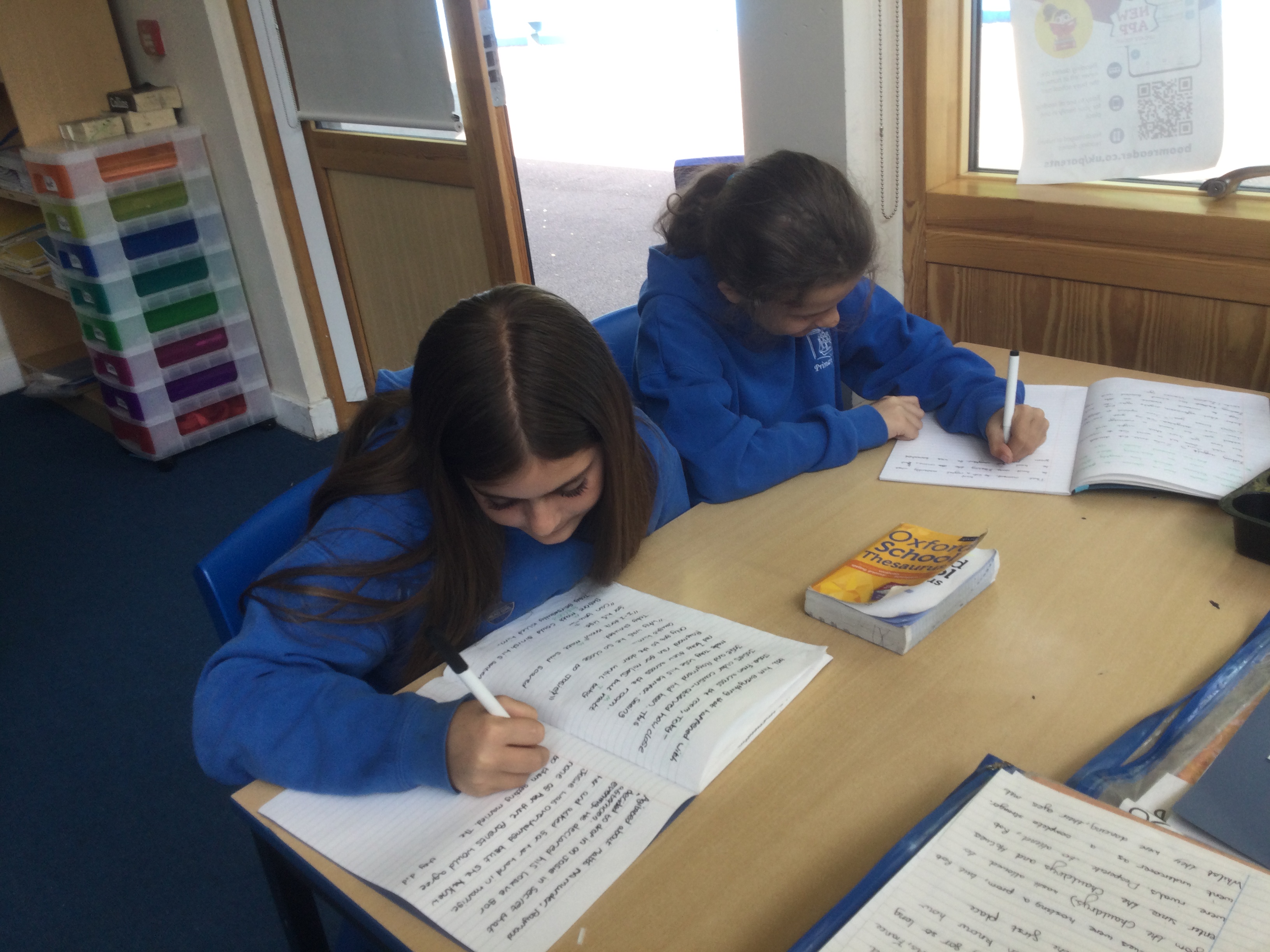

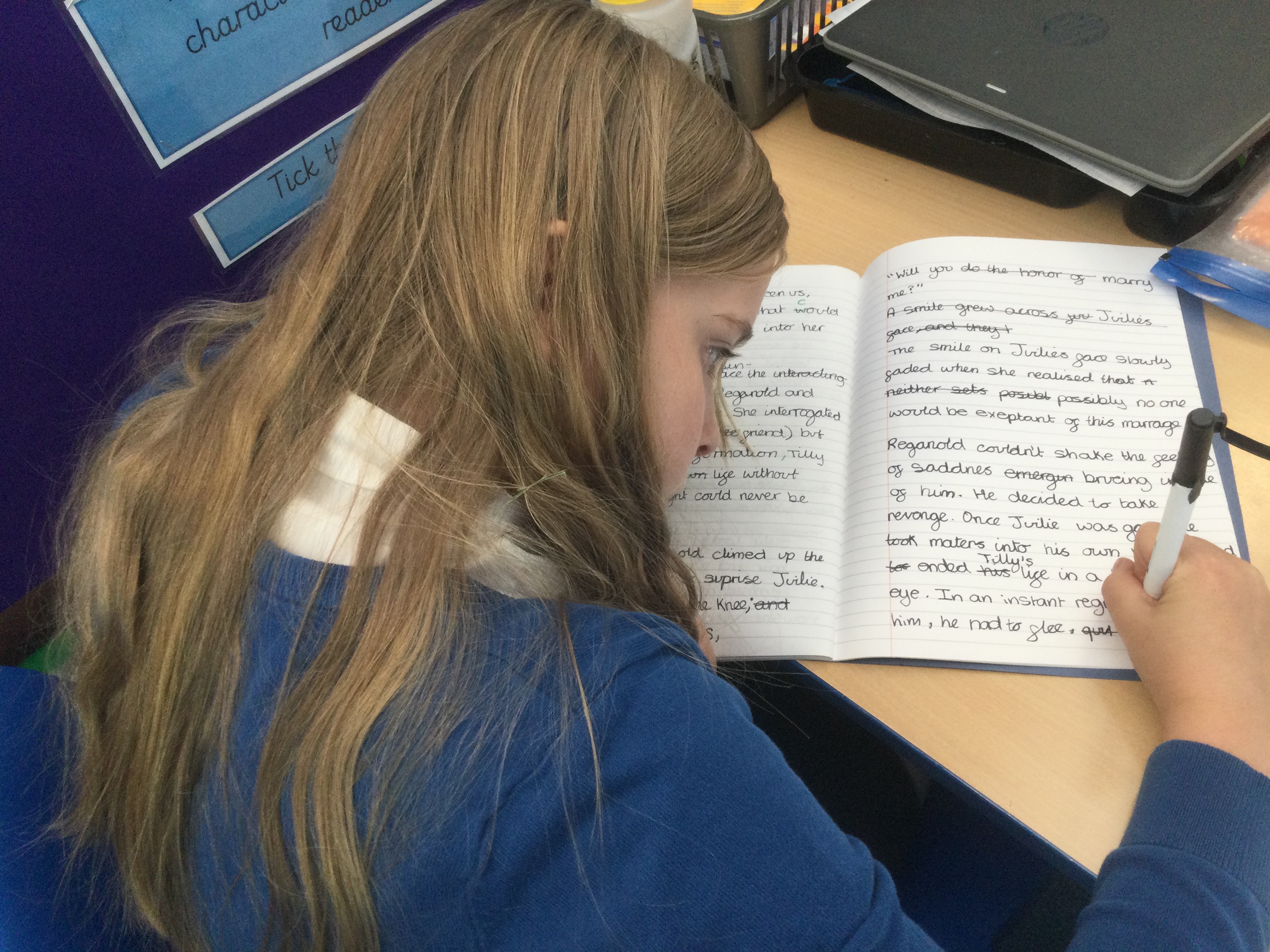
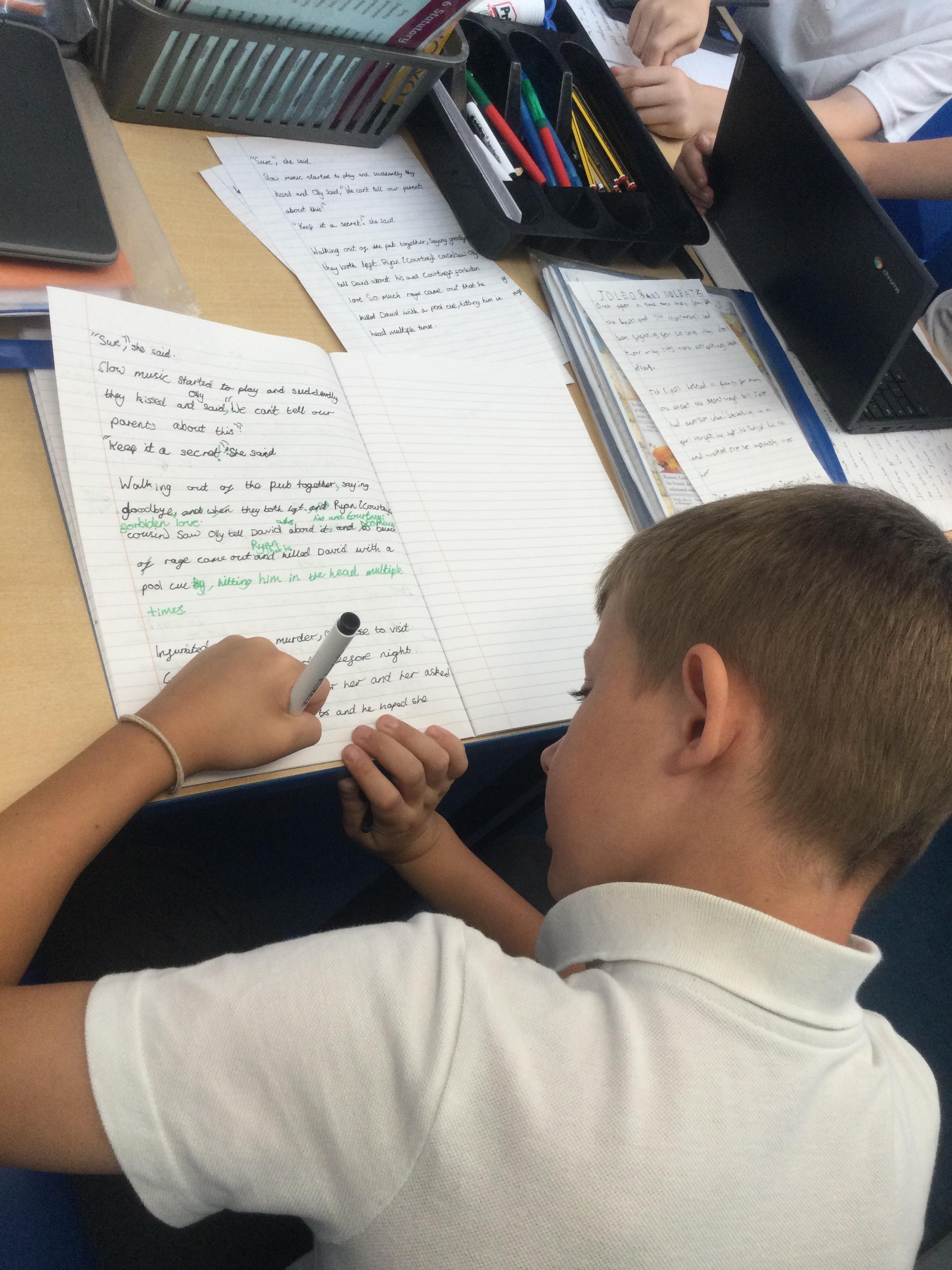
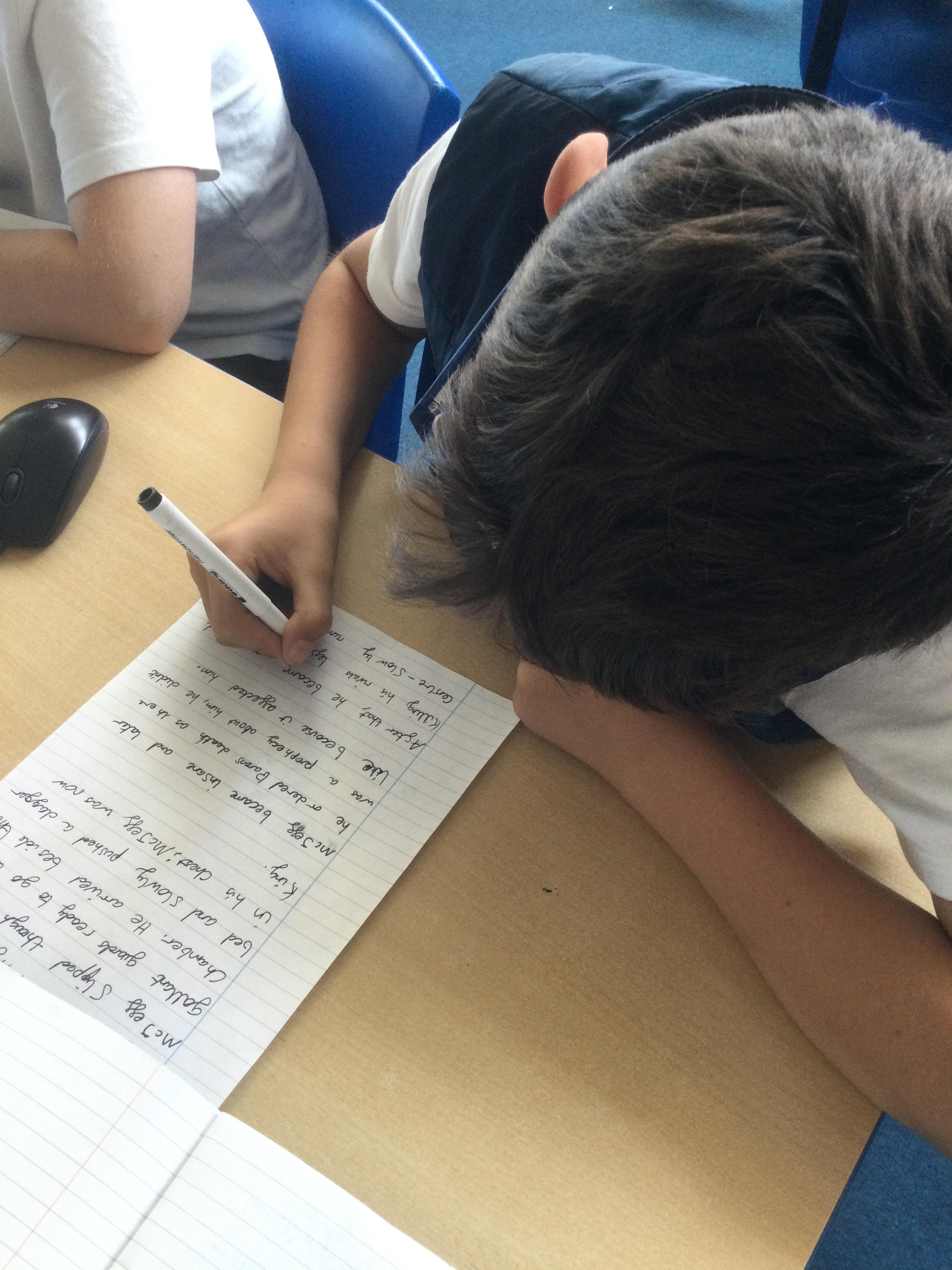
Handwriting
At the Victory Primary School, children begin to learn cursive script from early years, where appropriate in line with the 2014 curriculum. Handwriting is taught in a lesson and then practised and encouraged in all aspects of the curriculum thus promoting understanding and application.
Handwriting policy